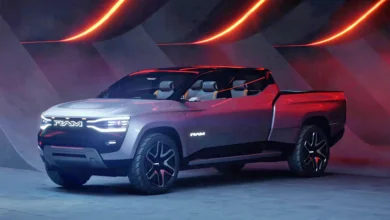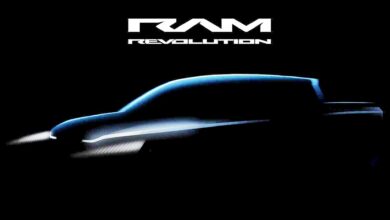
Batteries remain the most expensive element of an electric car. Although costs continue to decline progressively thanks to greater scale and the push for affordable chemistries such as LFP (lithium ferrophosphate), batteries are the main obstacle for electric vehicles to achieve parity. prices with their thermal counterparts.
To lower the rates of their zero-emission models, many manufacturers have begun to place greater emphasis on efficiency, since lower energy consumption allows them to obtain the same autonomy with a lower capacity pack. The best example is found in Tesla, whose Model 3 is a reference in this section.
However, there are some categories in which it is practically impossible to use small batteries, either due to the dimensions of the vehicle or the type of use that will be given to it. This is the case of pick-ups, one of the most important segments (probably the most) of the American market, where they have enjoyed enormous popularity for decades.
Chevrolet Silverado EV, Ford F-150 Lightning, GMC Hummer EV, GMC Sierra EV, Rivian R1T… All of these trucks use large packs. The maximum exponent of this reality is the new RAM 1500 REV, which uses a battery with… 229 kWh capacity! That is quadruple that of a 58 kWh Volkswagen ID.3 Pro.
The pick-up segment is one of the most popular in the US market
The Stellantis group truck uses NCM (nickel, cobalt, manganese) cells from LG Energy Solution. According to Visual Capitalist, which has used data from Benchmark Minerals Intelligence to perform a cost analysis, the RAM 1500 REV battery costs a whopping $25,853, representing 32% of the price alone. vehicle.

In other words, the RAM 1500 REV battery costs more than a complete Dacia Spring (19,990 euros), which allows us to get an idea of how expensive it is… and how expensive it will be to replace it if necessary. This shows us that, although an electric vehicle is generally more efficient and environmentally friendly than its thermal equivalent, even among zero-emission models there are still classes and alternatives that are much less sustainable than others.



